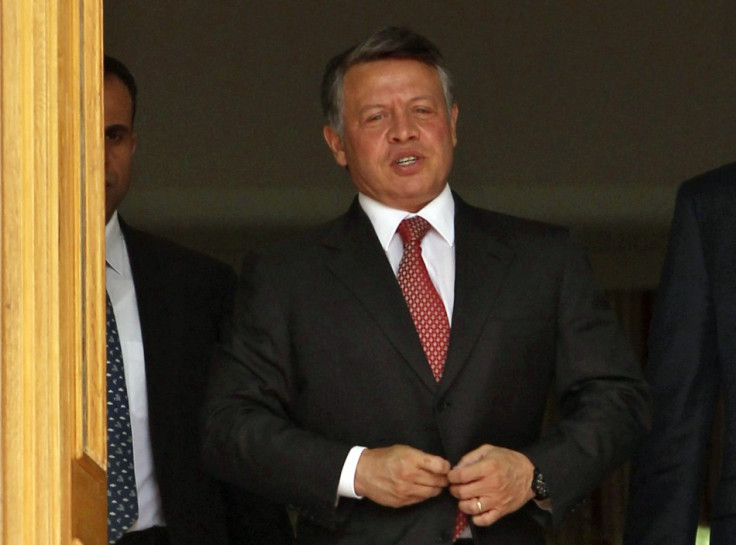Syria: King of Jordan calls for Assad to Step Down

The pressure on President Bashar al-Assad continued to mount Monday after Jordan's King Abdullah became the first Arab leader to call for the Syrian leader to step down.
The statement came after the Arab League voted in favour of suspending Syria. The organisation announced last week that Assad had agreed to stop the brutal crackdown led by his forces on protesters, but within hours, reports of more violence emerged, putting the group of states in an embarrassing position.
"If Bashar (Assad) has the interest of his country, he would step down, but he would also create an ability to reach out and start a new phase of Syrian political life," King Abdullah told the BBC in an interview.
"That's the only way I would see it work and I don't think people are asking that question," he added.
The Arab League move's was criticised by Walid al-Moallem, the Syrian Foreign Minister who called the suspension "shameful and malicious."
"We wanted the role of the Arab League to be a supporting role, but if the Arabs wanted to be conspirators, this is their business," al-Moallem said at a news conference in Damascus.
"Today there is a crisis in Syria which pays the price of its strong positions. Syria will not budge and will emerge stronger... and plots against Syria will fail," the minister added..
Syria has seen a group of states led by Qatar and Saudi Arabia call for more sanctions and only Syria, Lebanon and Yemen voted against the country's suspension while Iraq decided to abstain.
While analysts have said the vote to suspend Syria is a major boost for the Syrian opposition, thousands of Assad supporters took to the streets to denounce the move.
With foreign journalists prevented from entering the country, the situation in Syria is far from clear and the regime appears to still have a large base of support.
King Abdullah of Jordan also warned that any outside intervention would open 'Pandora's box', which seems to rule out an Arab league-led intervention.
While the Jordan's King position proves leaders from the Arab league are now growing increasingly tired of Assad's dismissive attitude towards their warnings, his position will not come as a surprise for many.
The two countries have been through a series of war ranging from the Yom Kippur war to the Gulf war but their relationship saw a new chapter after King Hussein of Jordan and Yasser Arafat agreed to form an alliance and signed an agreement in 1985.
Jordan however has a history of aligning to the US and UK goals and has been known to stand less in opposition to foreign western intervention in the gulf region, than Syria.
The two countries have also been at odds over their policy choice towards Washington following the invasion of Iraq in 2003.
While Syria was firmly against the American move, Jordan was not as critical and sources even said the country tried to convince Damascus of supporting the post-war political process.
In recent years however the relationship between the two countries improved and they share various bilateral agreement.
With Assad refusing to step down and fears of regional instability growing, it is not surprising the king of Jordan took such a strong stance against the Syrian leader, especially as the two countries share a border, but for now the Syrian 'issue' still remains unresolved as internal collapse and foreign intervention could both spread even more chaos.
© Copyright IBTimes 2025. All rights reserved.





















